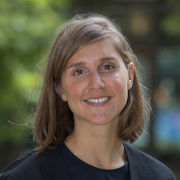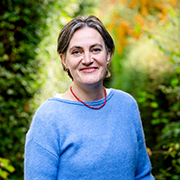Period
1-01-21 to 31-12-21
Abstract project
This project ‘Adapting the Care Ecosystem: Navigating people with dementia and their family through stages of care’ is aimed at adapting an existing and evidence-based US dementia care model to better fit the primary care model in Flanders, Belgium.
Dementia is one of the leading causes of disability among older people and its prevalence doubles every 20 years, with high costs associated. Because the needs of people living with dementia are chronic and cumulative, they require quite some extensive support from health and social care professionals, as well as from their family caregivers, along the way. It has been shown that primary care physicians play a pivotal role in being the first contact point and gatekeeper to more specialist dementia care for their patients. It is therefore important that these professionals are supported by specialists who can provide an extra layer of personalized support to these people and their caregivers and who can help them in navigating to care that suits their needs.
Internationally it has been acknowledged that care interventions are best if they are individualized and if they consider the person living with dementia as a whole, as well as include their family carers. Evidence is accumulating for the effectiveness, at least in the short term, of tailored psychosocial interventions to manage both their own and their families’ health, care and social needs. Evidence-based interventions for carers have widely been shown to be able to reduce depressive and anxiety symptoms over years and to be cost-effective.
The Care Ecosystem is a model of dementia care designed to provide cost-efficient care for people living with dementia and their caregivers throughout their disease trajectory, from beginning to the end. The main focus is on improving/maintaining the quality of life of both the person with dementia, as well as his/her family caregiver(s) by focusing on needs that are apparent —and are shown to be considerably complex as the disease worsens. The main component of this model is the care team navigation that is led by Care Team Navigators (CTNs), who serve as the main point of contact for patients and caregivers in the Care Ecosystem and who guides them to specialist dementia care that can complement their primary care (eg. social workers, pharmacists, and other healthcare professionals). Their work is guided by care protocols and they are supported and supervised by the primary care physician. This telephone and web-based intervention was shown to increase participants’ quality of life, decrease emergency department admissions (which are most often associated with distress among people living with dementia), and decrease family depression and caregiver burden in the US.
We propose a qualitative study in both primary care physicians, support organizations in the field, experts and people living with dementia and their family caregivers. We will involve these different stakeholders to assess whether this Care Ecosystem would be acceptable to test and implement in Flanders, and which components should then be adapted and how. We hope this will serve as a first step in evaluating the longer-term effects of this model in our own healthcare system.
Funding
Koning Boudewijnstichting - Fonds Maurange
Project Group
Dr. Joni Gilissen (Postdoctoral researcher)
Prof. Lieve Van den Block (Supervisor)
Prof Dr Patricia De Vriendt (Project groep member)
Partners





